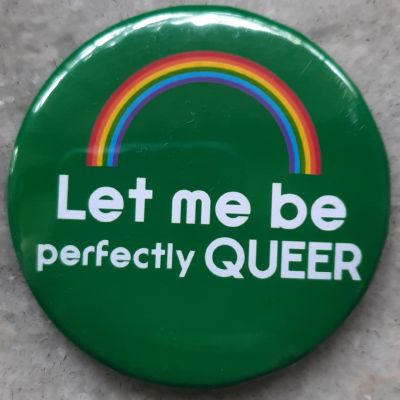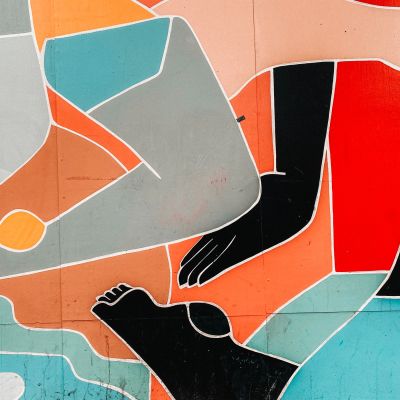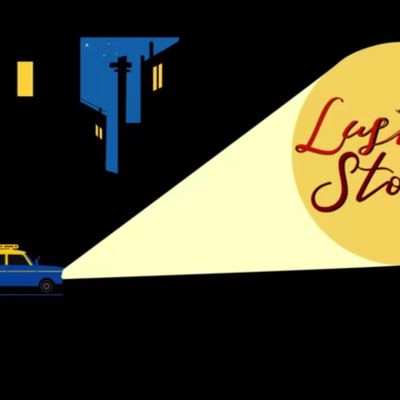relationships
Self-care is influenced by the environment we inhabit, the way we relate to others, the way we negotiate with other living beings or structures. Self-care is also interlinked with other types of care – whether that is in community resources, psychosocial support, engagement with medical and health care institutions, and of course in collective agency and solidarity.
She turns towards me when I speak, and I can feel her eyes thinking over my words, sensitive to any hint of criticism. Her thighs slide against mine, and for a moment we are both distracted by the naked coolness of our bodies. For a moment, we look at each other.
In A Heartbeat features a young man is quite literally torn between his heart and his mind when he develops feelings for one of his male classmates.
Queering transcends the confines of symmetry and is a way of looking, of breaking established meaning, of making new meaning, and of being and becoming that offers us the promise of fluidity, flux and freedom.
ऐसी जगहों की बहुत कमी है जहां विकलांगता के साथ जी रहे लोग अपने यौनिक अनुभवों या यौनिक जिज्ञासा के बारे में खुलकर बात कर सकें। खास तौर पर विकलांगता के साथ जी रहे युवाओं पर हर वक़्त निगरानी रहती है जिसका मतलब है कि वे यौन अनुभवों से वंचित रह जाते हैं और अपनी यौनिकता को समझ नहीं पाते।
Companions take many forms. Using the word very loosely here, a companion is anyone the self is connected to, anywhere, at any point in time, from a family member, to a stranger on a train.
I would say that growing up in a small village would make it difficult to find love or companionship, but I have since moved to a city and found that it was difficult to find love there, too. It did not stop me from trying, though.
I can recall my experiences in the washrooms of different gyms that I have been a member of. A men’s washroom is an interesting place in terms of how sexuality manifests itself in its various aspects. It was not unusual to see men of various kinds with strange energies in these washrooms.
As a generation X-er I grew up in a world that was challenging sexuality but only encountered the instability of gender as an adult in radical new academic texts which were not then yet part of our everyday narratives. My daughter born between Gen Z and Gen Alpha is growing up in a world of gender fluidity and multiple pronouns.
Every part of life, the world too, is storied. Stories are the thread that hold histories and truths together. Stories are at the core of myth-making. Everything that we know is part of multiple crisscrossing relational storylines that we raise and those that we have no power in raising.
If we are to reimagine coupledom and sexuality, we need to expand and challenge our ideas about togetherness, romance, love, intimacy, desire, sex, attachment, and so on.
Contemporary and predominant imaginations of intimacy focus primarily on a sex-centric (romance-centric?) model which assumes that sexual desire exists and holds the same value for every person and every relationship regardless of their subjective positions. Sexual intent and desire are often the cruces of how relational aspects such as intimacy are socially constructed.
Both rejections and affirmations of the couple are skewered on this doubleness: It is the fullest expression of love and proximity available to us, and it bears all the insufficiencies of present social relations. Monogamous romantic commitment, like infallible lifelong attraction to only men or only women, is surely a minority tendency expediently elevated to a general social principle.
The anthology’s pull rests in its sincere and frank portrayal of male and female desires cutting across the divides of age, sexuality, and socioeconomic position. In terms of romance, the idealistic, till-death-do-us-part fantasy peddled by our movies and mainstream literature has been replaced by a realistic portrayal of modern relationships.
There may already be another organisation in the community to share resources with but for community-led initiatives, a shared perspective on Safe, Inclusive, Sexuality-Affirming (SISA) spaces is also important. Sometimes when the shared perspective is not there, that becomes a challenge.















